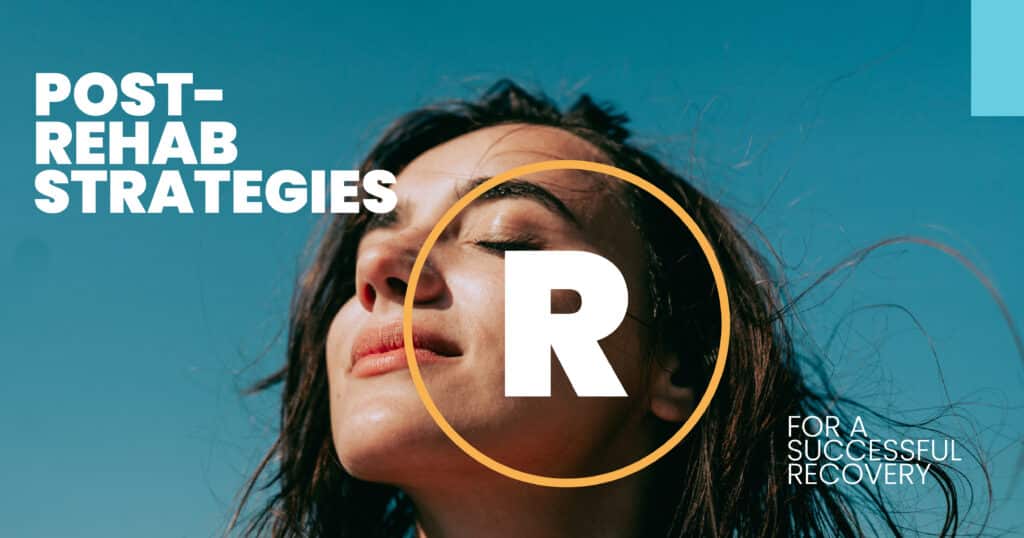Recovery from addiction is a lifelong journey that extends far beyond the walls of a rehab facility. Developing effective post-rehab strategies is crucial for maintaining sobriety after rehab and ensuring a successful recovery. This comprehensive guide outlines the essential steps and techniques to support your journey toward long-term health and wellness.
Importance of Post-Rehab Strategies
After completing a rehab program, the transition back into daily life can be challenging. Without a structured plan, individuals are at a higher risk of relapse. Post-rehab strategies provide the framework to help navigate these challenges, build resilience, and establish a stable, fulfilling life in recovery. A lifelong commitment to these strategies is essential for a successful recovery journey.
Building a Strong Support Network
The Role of Support Systems
A strong support network is one of the most critical components of post-rehab recovery. This includes family, friends, therapists, and support groups like Alcoholics Anonymous (AA) or SMART Recovery.
- Family and Friends: Surround yourself with people who understand and support your recovery journey. They create a supportive environment that fosters trust and healing.
- Therapists and Counselors: Regular counseling sessions can help address the underlying issues and provide strategies for coping with stress and triggers.
- Support Groups: Joining groups like AA or SMART Recovery offers peer support, shared experiences, and new coping skills. Sober living homes can also provide a safe and structured environment for recovery.
Developing Healthy Habits
Physical Health
Maintaining physical and mental well-being is crucial for overall wellness and recovery. Incorporate the following habits into your daily routine:
- Regular Exercise: Physical activity boosts mood, reduces cravings, and improves overall health. A well-rounded exercise regimen can include cardio, strength training, and flexibility exercises.
- Balanced Diet: Eating nutritious meals provides the body with essential nutrients for optimal functioning.
- Adequate Sleep: Ensure you get enough high-quality sleep each night to support your mental health and physical health.
Mental and Emotional Health
Prioritizing mental and emotional health is equally important:
- Self-Care Activities: Engage in journaling, meditation, or hobbies promoting relaxation and well-being.
- Mindfulness Practices: Deep breathing and meditation can help manage stress and cravings.
- Ongoing Therapy: Continue with individual therapy or group therapy to address any ongoing mental health issues.
Identifying and Managing Triggers
Recognizing Triggers
Triggers are cues that can lead to cravings and potential relapse. Identifying these triggers is crucial for managing them effectively:
- Environmental Triggers: Certain places or situations remind you of past substance use.
- Emotional Triggers: Feelings like stress, anger, or sadness that may lead to cravings.
- Physical Triggers: Bodily sensations might trigger a desire to use substances.
Coping Strategies
Developing robust coping mechanisms can help manage these triggers:
- Mindfulness and Meditation: Practice mindfulness to stay grounded and reduce stress.
- Physical Activity: Engaging in regular exercise to improve mood and decrease cravings.
- Support System: Talk to a friend or family member when triggered.
Establishing a Structured Routine
A structured approach provides stability and helps you stay focused on your recovery goals:
- Daily Schedule: Create a daily routine with time for work, exercise, meals, and relaxation.
- Healthy Boundaries: Set and maintain boundaries to protect your recovery.
- Regular Activities: Incorporate sober activities that promote sobriety and well-being, such as hobbies, volunteering, or educational pursuits.
Building Resilience
Resilience is the ability to adapt and bounce back from life’s challenges. It’s a vital skill in recovery:
- Focus on Strengths: Leverage your strengths and past successes to build confidence.
- Set Realistic Goals: Break down bigger goals into manageable steps.
- Develop a Relapse Prevention Plan: Work with your therapist to identify triggers and coping strategies.
- Stay Connected: Build and maintain a robust support network of friends, family, and professionals.
Finding Purpose and Fulfillment
Cultivating a sense of purpose can significantly enhance your recovery journey:
- Rediscover Passions: Engage in activities that bring you joy and fulfillment, such as creative arts and physical or intellectual pursuits.
- Volunteer: Helping others can provide a sense of purpose and community. Participating in supportive work environments can also aid recovery.
- Build Meaningful Connections: Form new, healthy relationships and rebuild existing ones to support your sober life.
Addressing Co-occurring Disorders
Many individuals in recovery also struggle with co-occurring mental health issues, such as anxiety or depression:
- Professional Help: Seek treatment for any underlying mental health conditions.
- Integrated Care: Ensure that your recovery plan includes mental health care. Mental health professionals can guide you through this process.
- Medication and Therapy: Use a combination of medication and therapy as prescribed by healthcare professionals.
Conclusion
Recovery is a long-term journey that requires commitment, resilience, and a comprehensive post-rehab strategy.
By building a strong supportive network, developing healthy habits, managing triggers, establishing a structured environment, and finding purpose, you can navigate the challenges of post-rehab life and achieve long-term sobriety. Remember, progress is more important than perfection. Be patient with yourself, prioritize your well-being, and lean on your sober support network to maintain a successful recovery.









